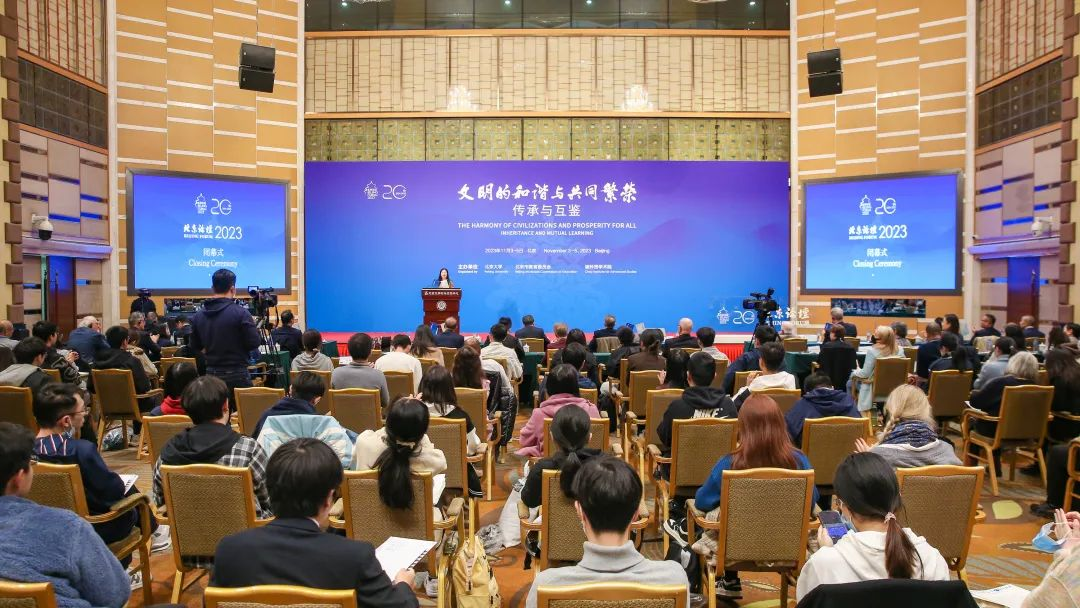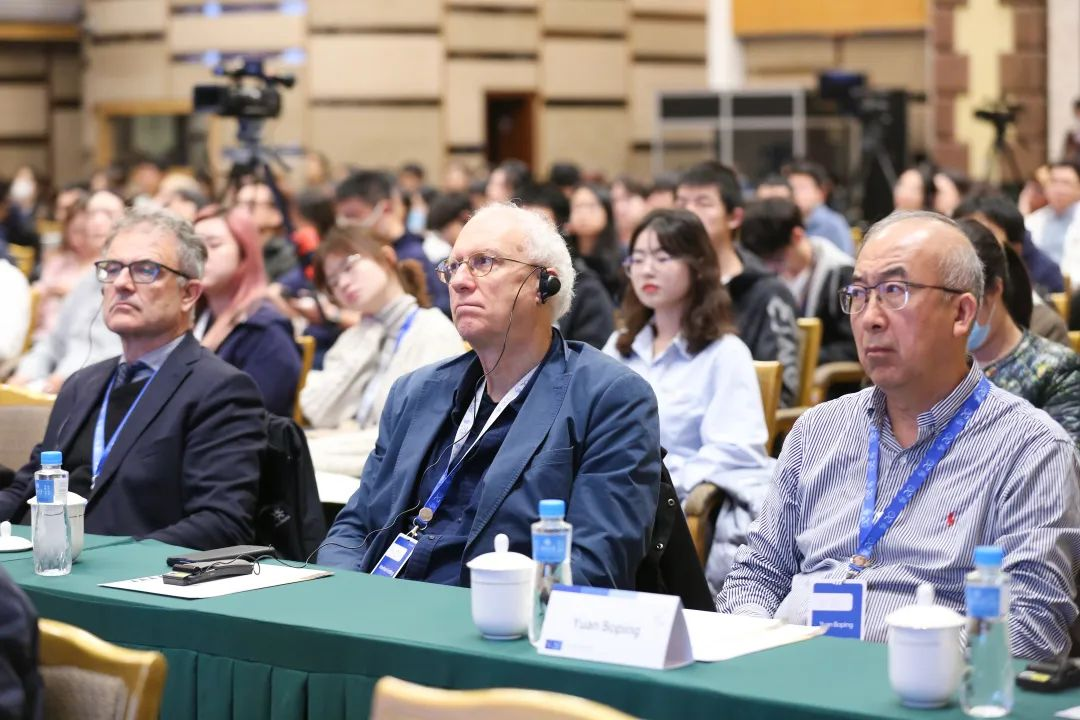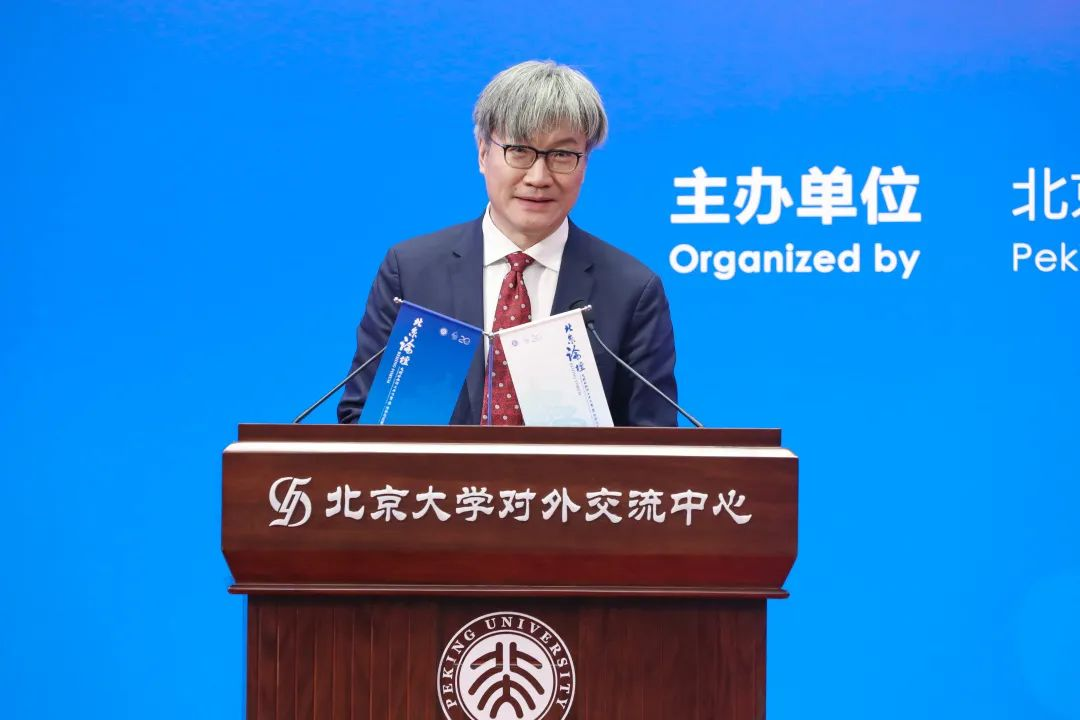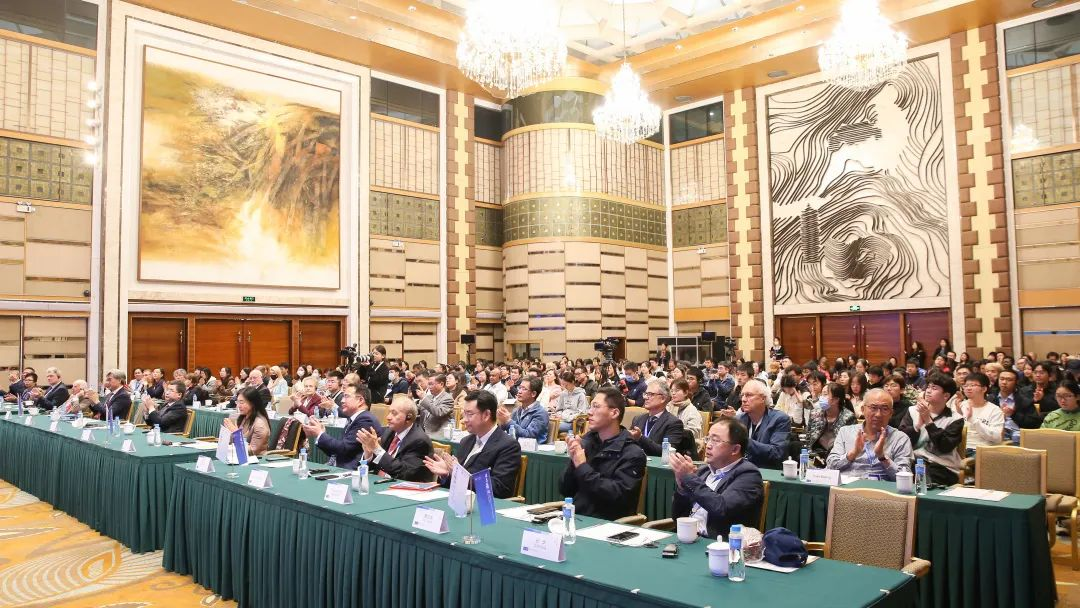Closing Ceremony of 20th Beijing Forum held at Peking University
Nov 08, 2023
Peking University, November 7, 2023: The Closing Ceremony of the 20th Beijing Forum was held on Nov. 5, 2023, at the Sunshine Hall of the Yingjie Exchange Center of Peking University (PKU).
Hosted by Ning Qi, vice council chair and vice president of PKU, the event was joined by scholars, experts, and guests from around the world, who reviewed the wonderful moments of the three-day forum and looked forward to the blueprint for future exchanges and cooperation.
In his remarks, Wang Bo, vice president and provost of PKU, first congratulated the successful hosting of the forum and expressed his deep gratitude to all participants for their hard work and contributions. He pointed out that the forum had rich themes and diverse contents, and the exchanges and discussions among scholars and guests were comprehensive and in-depth, which was very enlightening for the central theme of “reviewing history, attending to the present and enlightening the future.” In his speech, Wang also shared his understanding of how to “consciously enhance the ability to cope with changes, play a better role in understanding history and creating the future, and shape a better person and a better world.”
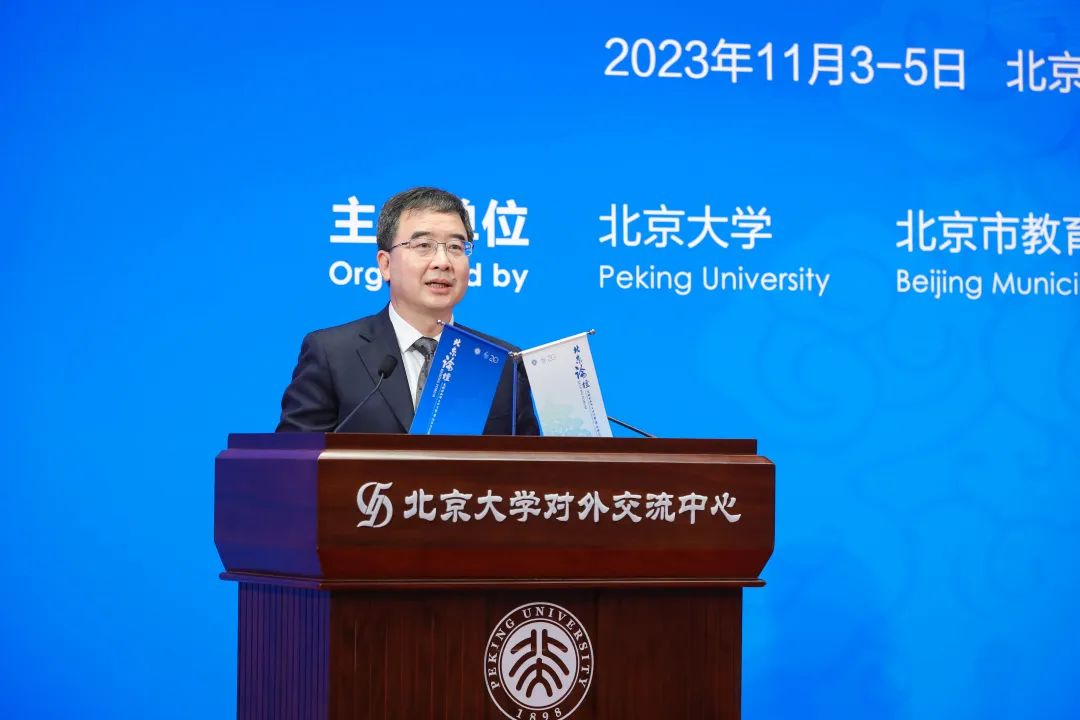
Li Yi, director of the Beijing Municipal Education Commission, expressed his gratitude to the delegates and all who supported the development of education in Beijing. He stressed that the Beijing Forum had been an important platform for cultural exchange and enhancing global civilizational dialogue since 2004, inheriting cultural heritage while also pushing cultural innovation vitality of modern Beijing. Li also emphasized that the world is undergoing unprecedented changes, and the exchange and mutual learning of civilizations “are crucial” for promoting human progress. As one of the organizers of the “Beijing Forum,” the Beijing Municipal Education Commission would work with leaders globally to promote the protection of cultural heritage, the exchange and mutual development of knowledge, and the prosperity of culture, and inject profound and lasting cultural power for promoting the building of a community with a shared future, he added.
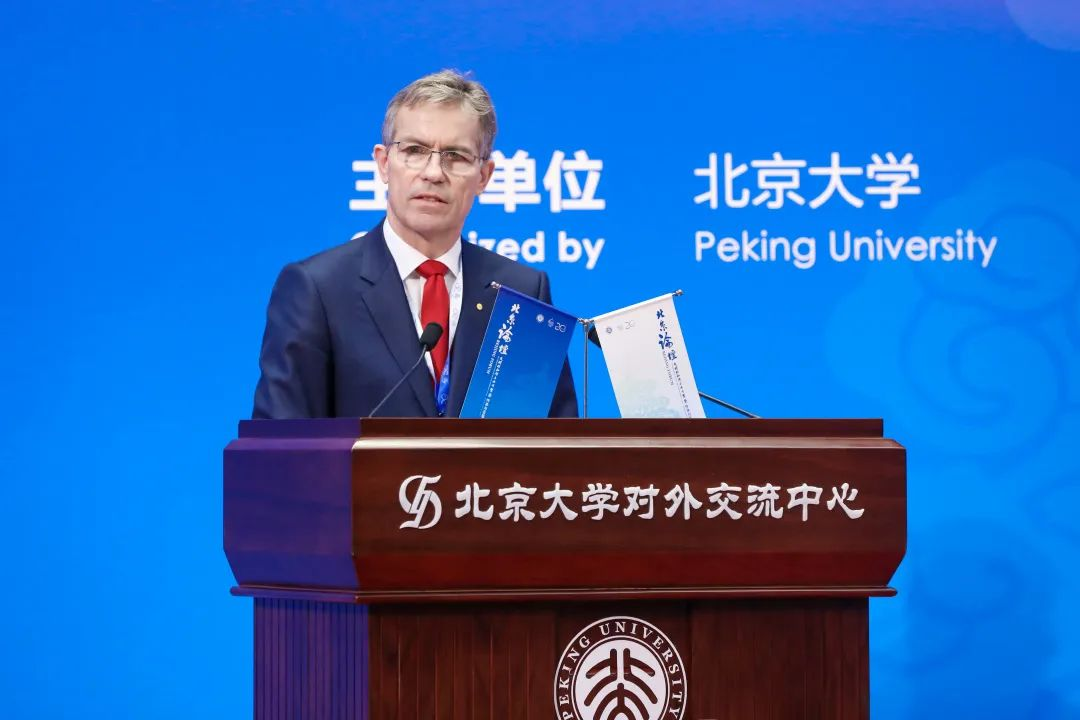
Peter Hoj, vice-chancellor and president of the University of Adelaide in Australia, stressed that the Beijing Forum provided a valuable platform for promoting exchanges between different cultures. He recalled his speech during the 2019 forum, proposing initiatives to transcend tense geopolitics, share low-carbon technologies, and promote free exchanges of knowledge. If all parties could uphold the general theme of the Beijing Forum - “Harmony of Civilization and Prosperity for All” and jointly seek solutions to one of the “biggest practical and moral challenges in the world”, then even on matters where there are differences of opinion, a stronger consensus can be established, he stressed.
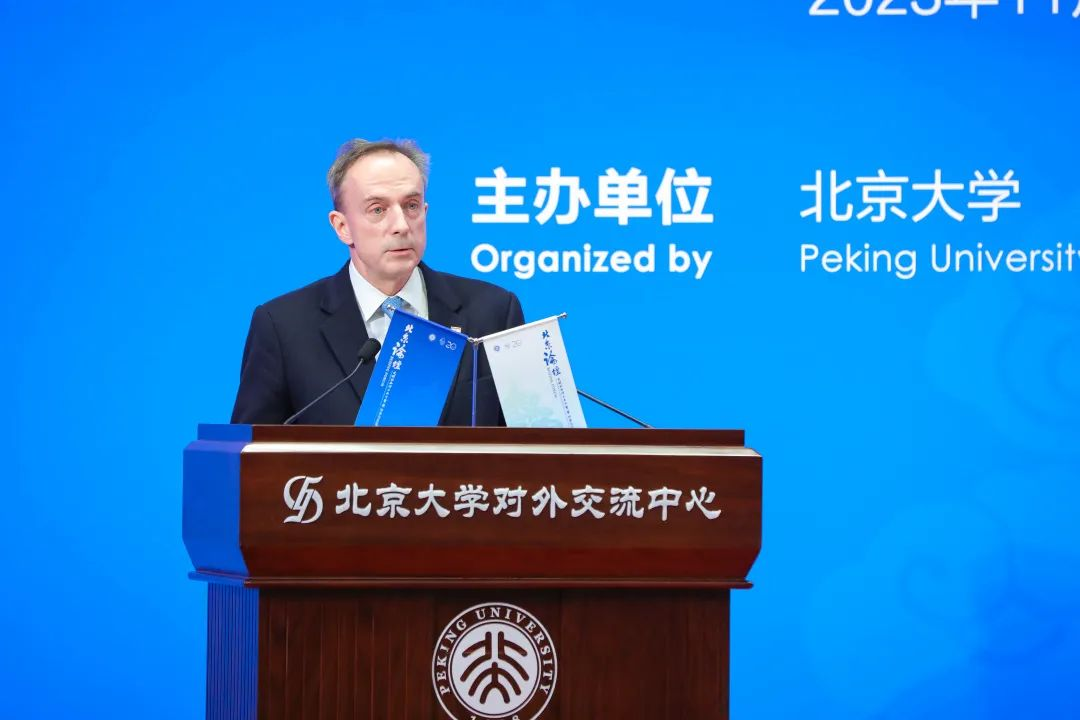
Mark Elliott, vice provost for International Affairs and a professor of Chinese and Inner Asian History at Harvard University, emphasized the importance of academic exchange between China, the United States, and other countries participating in the forum. He believed that this was not only a process of knowledge inheritance, but also an opportunity for mutual learning and cultural understanding. Elliot shared his views on cooperation in driving scientific discoveries and tackling global challenges (such as pandemics, climate change, clean energy, and food security), and believed that working together could bring mutual benefits. To ensure the success of cooperation, he highlighted, a reciprocal and mutually beneficial structure should be established, and the principle of reciprocity should be built into the overall framework of academic exchange in all fields while ensuring that there are appropriate safeguards in areas involving national security.
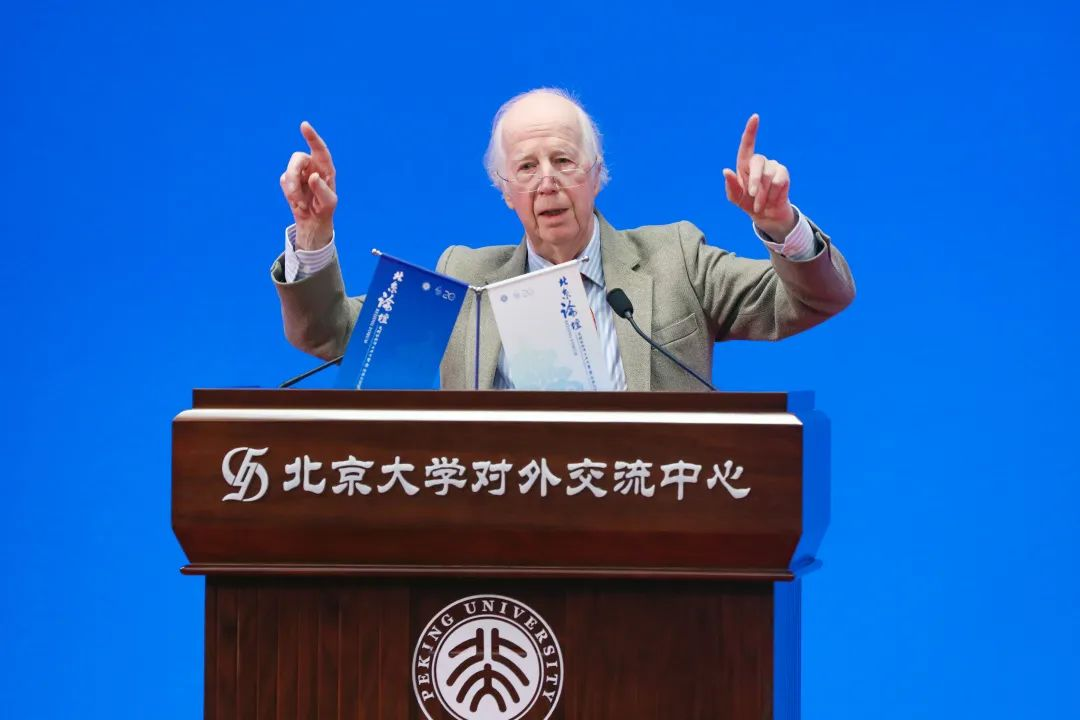
Alan Macfarlane, a fellow of the British Academy and a Life Fellow of King’s College, Cambridge, pointed out that the growth and development patterns of civilizations were similar to the growth of trees: “We can learn about them and predict the future from studying the patterns of their growth… (yet) they cannot suddenly change from one species into another.” He took China and the Anglo-American system as examples to illustrate the patterns of civilizational growth over the centuries. Macfarlane believed that the essence of harmony is to achieve mutual understanding and respect and preserve differences within the common acceptance of rules. In addition, he also took the importance of Chinese culture and British culture as examples to emphasize the promotion of mutual learning among countries.
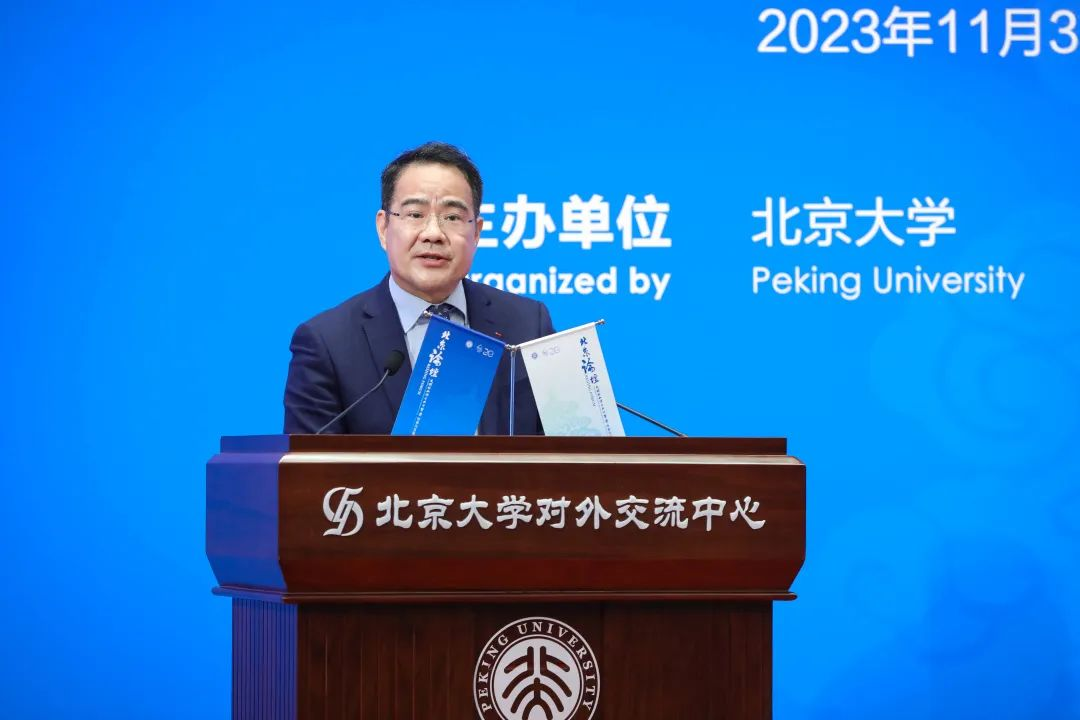
Dong Qiang, the Boya Distinguished Professor, dean of the Yenching Academy of PKU, and a lifetime member of the French Academy of Moral and Political Sciences, shared his views on the topic of “Can Chinese become a more global language.” He recalled his experience of doing translation work at home during the SARS epidemic, which made him think deeply about the possibility of Chinese becoming an international language. He also recollected how the Marquis of Dama in France hoped that he would translate the “Olympic Declaration” and spread it to the world, which made him reflect on the global status of the Chinese language. From this, he raised a broader question: whether Chinese can become a more global international language, and what this means for China’s position in the world and other countries’ views of China. Finally, he called on educators, intellectuals, creators, and artists to work hard to promote Chinese as an international language and expressed his hope to let more people feel the charm of Chinese through excellent translation work.
2023 marks the 20th anniversary of the Beijing Forum, which is in concurrence with PKU’s Global Engagement Year. Since its inception in 2004, the Beijing Forum has persisted and developed its central theme “Harmony of Civilization and Prosperity for All”, and is now widely recognized and valued by the international academic community.
Written by: Niki Qiu
Edited by: Dennis Meng
Photos by: Beijing Forum
